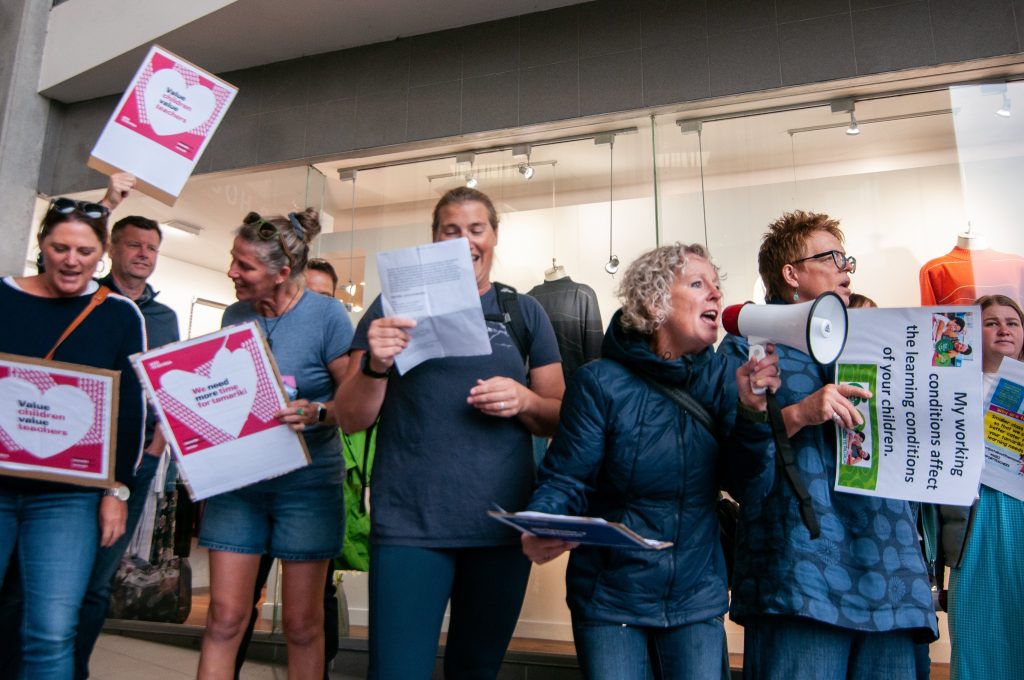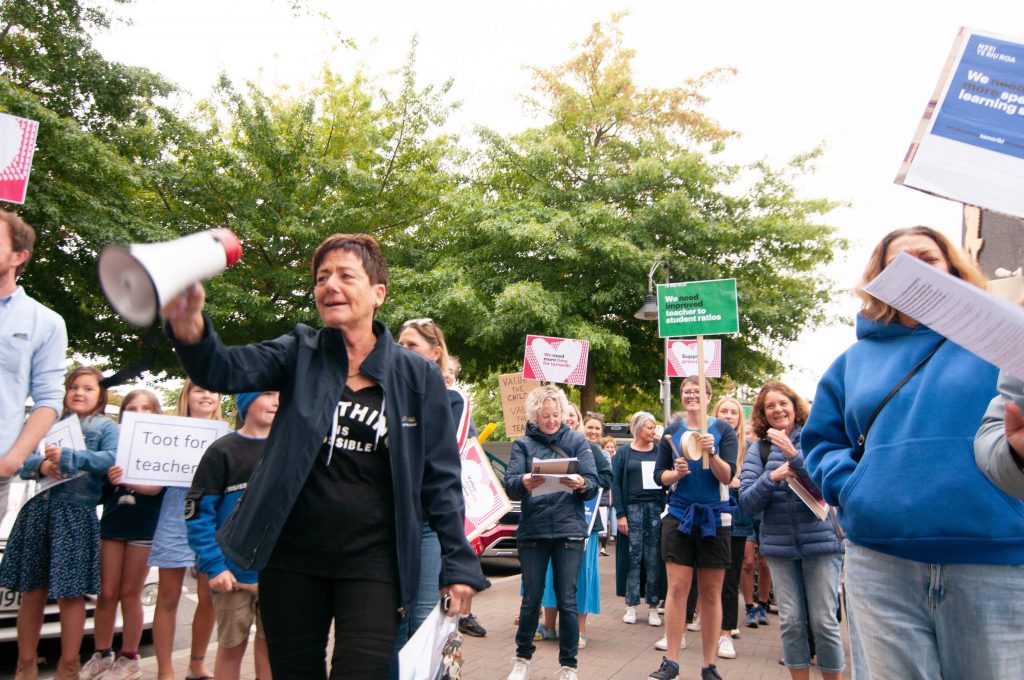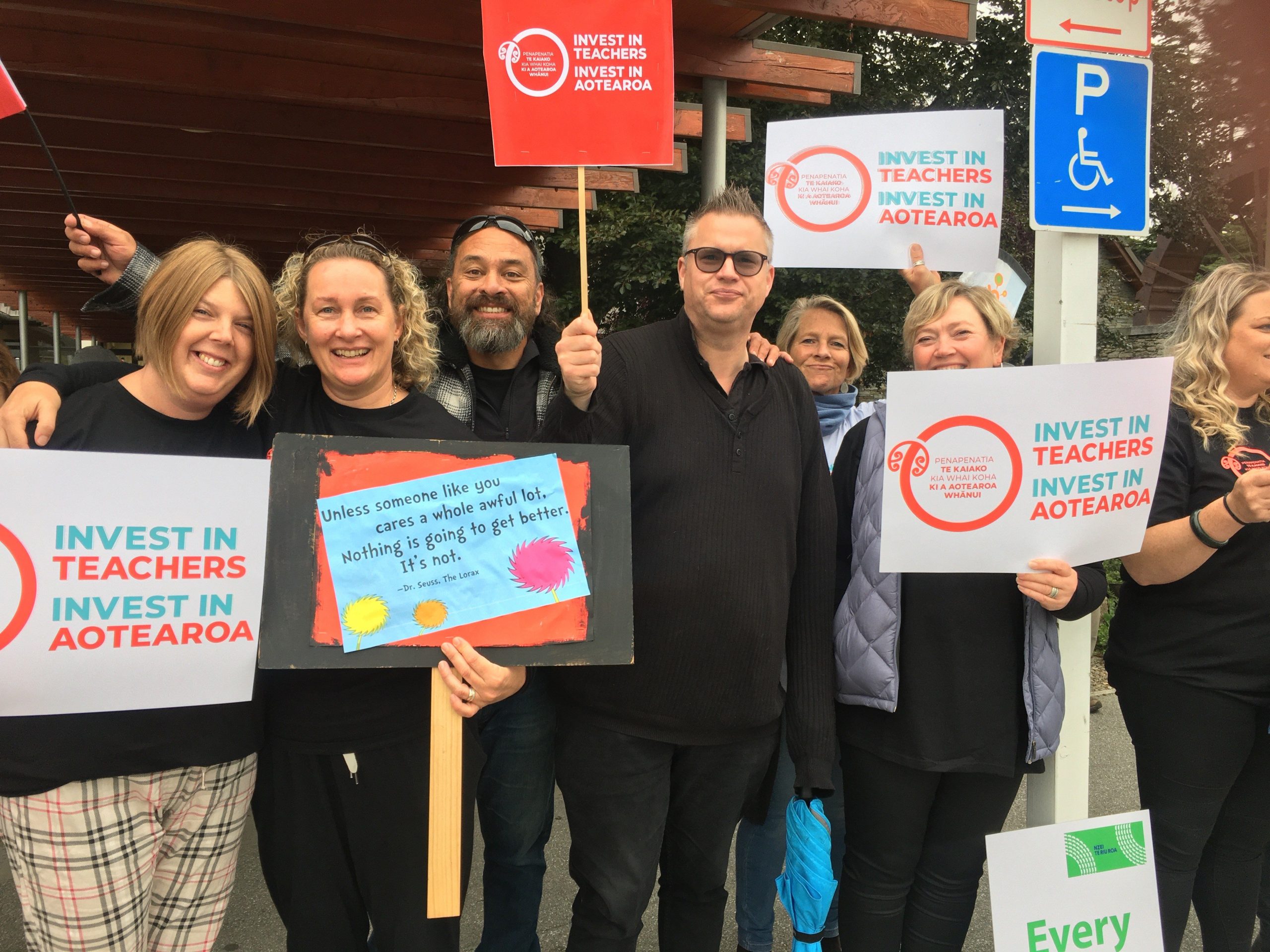The region’s teachers made their frustrations known last week as they joined tens of thousands of their peers protesting throughout the country.
In Alexandra, about 50 protesters lined Centennial Ave with banners and placards, some asking for passersby to ‘‘make some noise for education, your children are worth it’’ and ‘‘fix our broken system’’, while other signs apologised for the day away from school with ‘‘sorry for the disruption but your kids are worth it’’.
Dunstan High School (DHS) teacher Laura Boulton said she understood 50% of new high school teachers left the profession within five years.
There were not enough teachers to fill vacancies, leaving current teachers shouldering the load, she said.
‘‘[It’s] not a desirable profession that people want to be part of.’’
DHS teacher Maria Affleck, of Alexandra, said teachers wanted the best possible outcome for their students. It was important good teachers were recruited and that teaching was their number one choice, not a back-up job.
Her colleague, guidance counsellor Julie Williamson, said there needed to be significant mental health support for students.
They were under pressure on many levels from social media, difficult home lives, and the pressure on families as the cost of living rose, she said.
Some secondary school students were responsible for getting younger siblings off to school as their parents worked long hours. Many had their own part-time jobs as well as school work to manage.
St Gerard’s School principal Julie Flannery said the diverse needs of students had increased without an increase in resources or support for teachers.
Teachers could not do justice to their pupils in these conditions, she said.
A group of early childhood teachers, who did not wish to be identified, said they were most vulnerable to sickness yet only entitled to 10 sick days a year, the minimum legally required.
Relief teachers were hard to retain because their pay was capped, despite doing the same job, the protesters said.
In Cromwell teachers and supporters gathered at the Big Fruit.
NZEI branch president and Goldfields primary school teacher Nic Hale said teachers could not do their job effectively without changes to a broken system.
Class sizes of up to 30 children was not acceptable. Some new entrants classes had up to 22 5-year-olds in them already and there would be more starting as the year wore on, she said.
More funding for support staff was also needed as children with diverse needs drew teacher’s attention away from the others in the class.
‘‘It’s not OK.’’

In Wanaka a 60-strong group of teachers, principals and supporters from across the sector marched throughout the town centre with placards and chants, stopping at various points to make speeches.
An adapted version of Pink Floyd’s Another Brick in the Wall was sung as an anthem, saying ‘‘hey government, fix this for us now’’.
Wa ¯naka Primary School principal Wendy Bamford had been teaching for 48 years and had never seen teaching conditions as bad as they were now.
‘‘I think the government really needs to look at it — I’m at the end of of my career and I know that people I speak to don’t want to go into my job because it is so stressful and complex.
‘‘The ministry moves so fast, everything moves so fast at the moment , it just becomes overwhelming.’’
Negotiations are ongoing and teachers are yet to decide if further industrial action will be taken.






